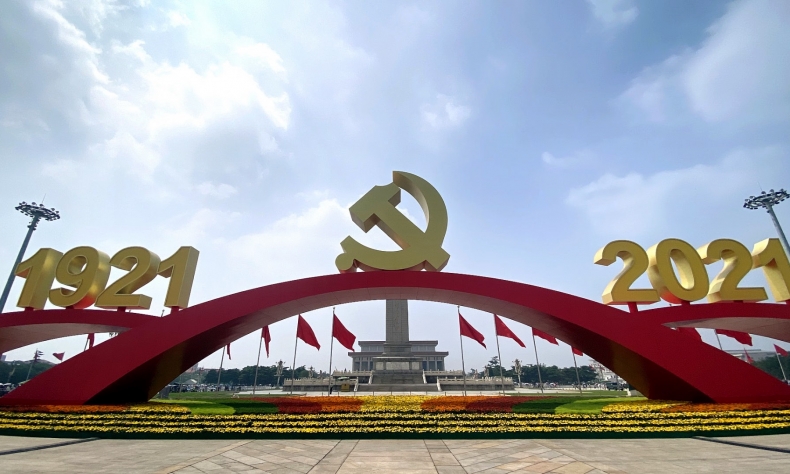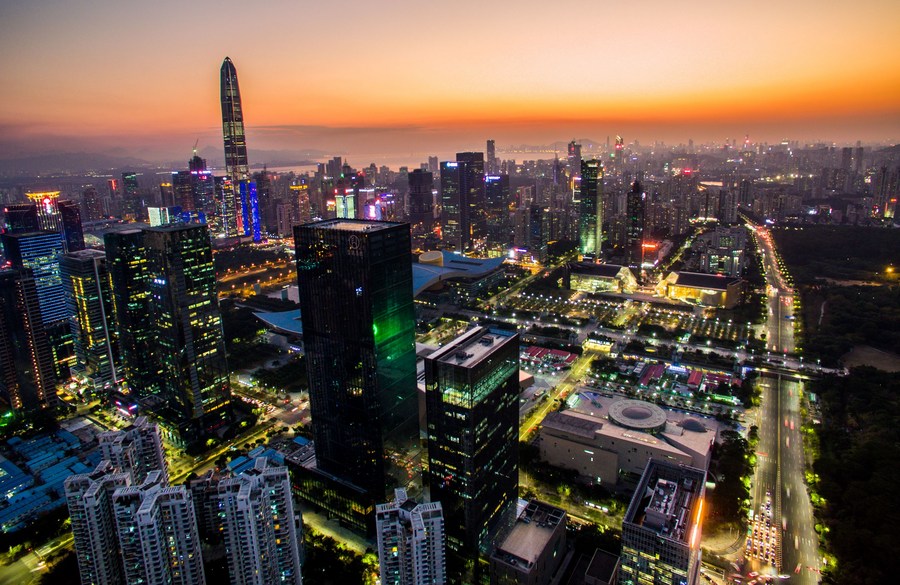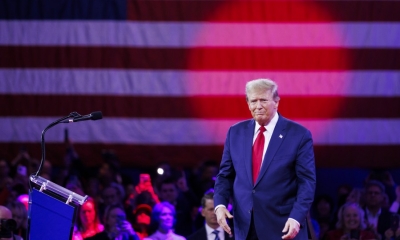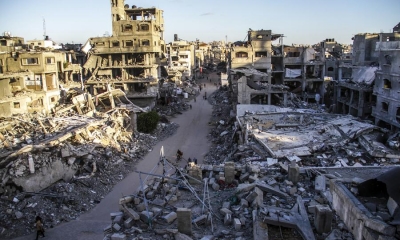Xi’s CPC Centenary Speech Offers Good Relations

The present Western hysteria about China must be replaced with realistic thinking and a win-win outlook.
Western pundits and press were quick to criticize Chinese President Xi Jinping’s speech at the CPC Centenary ceremony as harsh and aggressive. But critics were not listening carefully. While Xi appealed to Chinese patriotism he also offered cooperative win-win relations to the world so as to build a bright shared future.
Today, we live in a changing world. Sometimes it seems to be changing so fast that we hardly have time to understand the situation in historical context. Five hundred years ago, the Western world set out on a course of exploration followed by colonialism and imperialism. The decolonization process began after World War II and was fast-paced in the 1960s which was, of course, not so long ago.
President Xi set into this broad historical context the fate of China which resulted in semi-colonial status from European and Japanese imperialism especially in the 19th century. The memory of these humiliating and difficult times naturally remains vivid, particularly in the older generation. Evoking this memory, President Xi pointedly said that China today has the strength to rebuff bullying.
Chinese self-strengthening has been led by the CPC working with the Chinese people. Modernization spurring socialist construction since the Reform and Opening-up policy across many key sectors. Thus, China’s self-defense capabilities today have significant capability and serve as a deterrent.
Turning to Chinese diplomacy, Xi emphasized “building the human community with a shared future.” Western critics of China failed to point out this significant aspect of Xi’s speech. The concept of a shared future builds on earlier Chinese diplomatic theory and practice.
For example, back in the mid-1950s, Zhou Enlai promoted the concept of the “Five Principles of Peaceful Coexistence.” They are: mutual respect for sovereignty and territorial integrity, mutual non-aggression, non-interference in each other’s internal affairs, equality and mutual benefit, and peaceful coexistence.
In following through on these principles, Chinese diplomacy, as officials say, is guided by “amity, sincerity, mutual benefit and inclusiveness”. This formulation takes on practical significance when considering the perspective that we live in an era in which the trend is toward peace and development as desired by the international community.
Xi said, “China has always worked to safeguard world peace, contribute to global development, and preserve international order.”
China has its own model for development which involves socialism with Chinese characteristics. Critics often appear unfamiliar with the great effort the CPC has put into theory and updating it based on experience and changing internal and external conditions. One only has to visit China, or even look at photographs and videos of China today, to see that the CPC has developed a correct line for China.
China, unlike the West, does not seek to impose its development model and social system on the world. However, the international community can learn from China’s experience and countries can certainly apply aspects of the Chinese model that seem appropriate to their circumstances. Why not?
President Xi in emphasizing a “human” community with a “shared future” emphasized China’s historical values such as “peace, concord, and harmony”. He associated these values with 5,000 years of Chinese history and, naturally, they have a universal dimension in all cultures and serve as an ideal for the international community. Indeed, the spirit of the United Nations organization and international law embrace these values.

What about China’s rise? Western critics seem to work themselves into hysteria over China. Racist visions of some “Yellow Peril” drive Western China Threat Theory.
The fact is that Asia is rising and has been for decades after the devastation of World War II and after decolonization. Let’s keep in mind the postwar historical context. The rise of the “Four Little Dragons” (South Korea, Singapore, Hong Kong, and Taiwan) during the 1960s-1990s is well known. Japan rebuilt itself and modernized.
So Asia was rising before China began to take off as a result of the Reform and Opening-up policy begun in 1978 under the very able leadership of Deng Xiaoping. Xi underscored the significance of this fundamental reform and took care to note the significant role of Liu Shaoqi and Chen Yun in this effort. The policy had epic consequences with China in 2010 replacing Japan as number two economy in the world. By some measures such as PPP, China has even replaced the US as number one economy.
Xi described this historical process as the “Asian renaissance.” We can add ASEAN to this picture to get a sense of the vast nature of change in the international system. The international system is a dynamic process and, as is well known, today is becoming more multipolar, polycentric, and pluralist. This is why China emphasizes “inclusiveness” and cooperation.
Xi said a “new type of international relations” is needed. To this end, the role of the United Nations and international law must be respected. In building a shared future bullying and power politics have no place. The times call for constructive diplomacy and a positive vision for the future.
“The Party will continue to work with all peace-loving countries and peoples to promote the shared human values of peace, development, fairness, justice, democracy, and freedom,” Xi said. To this end, he emphasized the values of cooperation and mutual benefit.
The present Western hysteria about China must be replaced with realistic thinking and a win-win outlook. Constructive engagement and cooperation with a sense of a “shared future” must replace hegemony and a certain race-based chauvinism.
 Facebook
Facebook
 Twitter
Twitter
 Linkedin
Linkedin
 Google +
Google +







